A Knowledge organiser that captures the essential knowledge and skills learnt throughout the unit Art and design, Year 6, Drawing: Expressing ideas through art.
A Knowledge organiser that captures the essential knowledge and skills learnt throughout the unit Art and design, Year 6, Drawing: Expressing ideas through art.
This Knowledge organiser is designed to support Year 6 children as they develop their drawing skills and explore how artists express ideas through art. It introduces key techniques such as one-point perspective, scale and proportion to create depth and realism. The resource also explores different forms of artistic expression, including murals, street art and graffiti. It is perfect for consolidating essential knowledge, inspiring creativity and deepening children’s understanding of how drawing can communicate meaning and emotion.
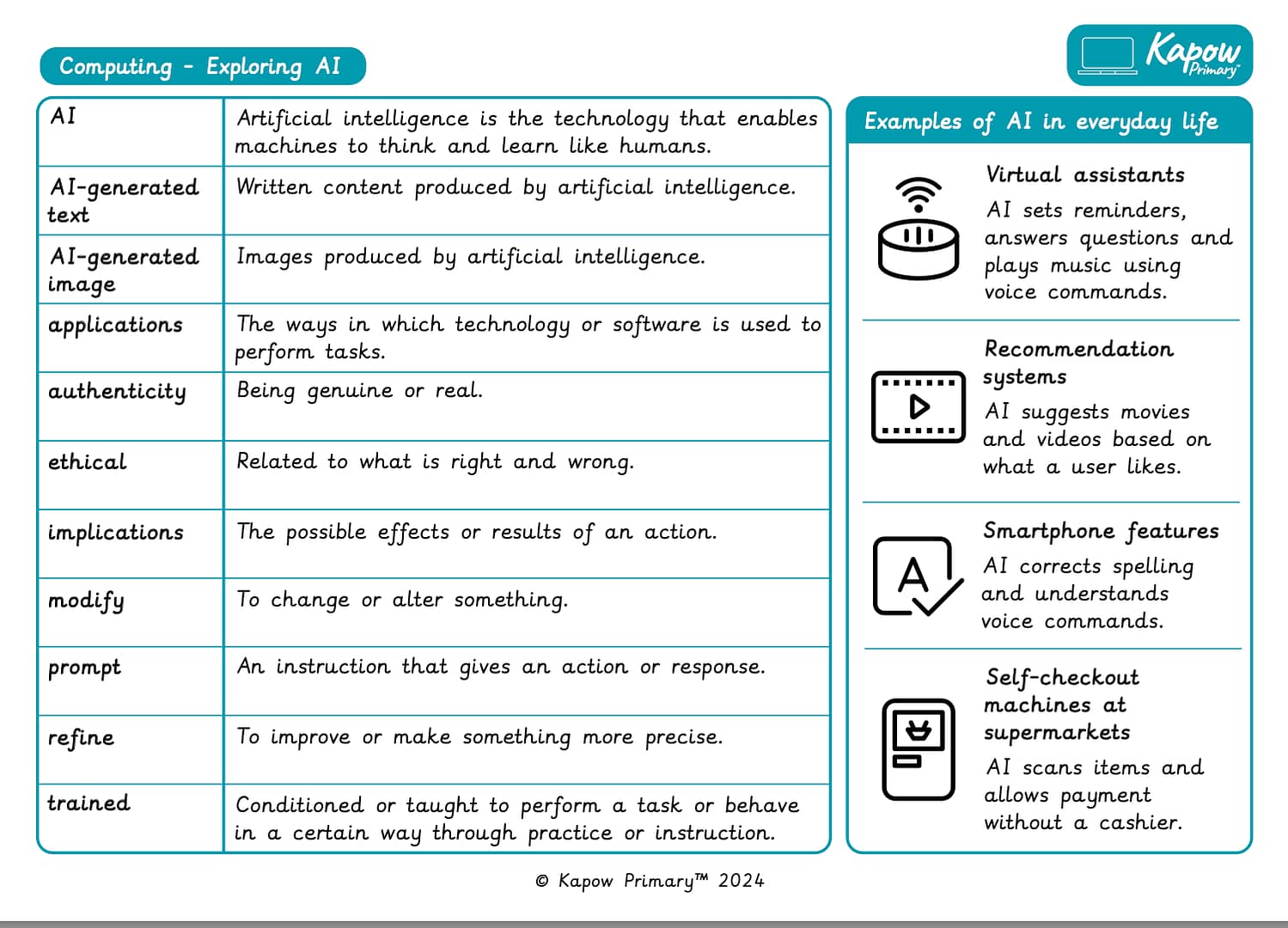
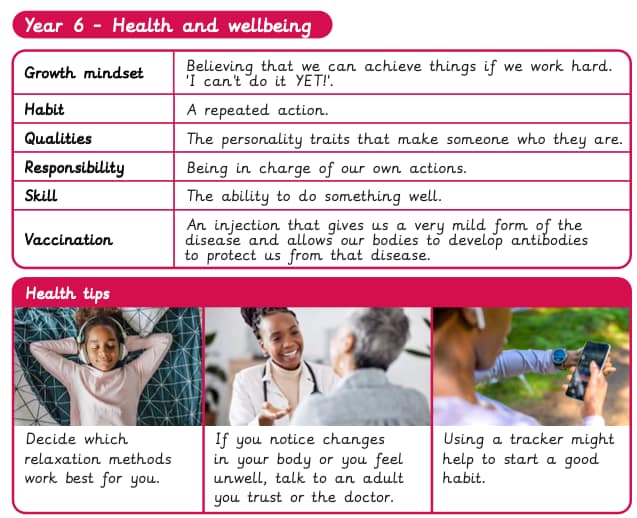
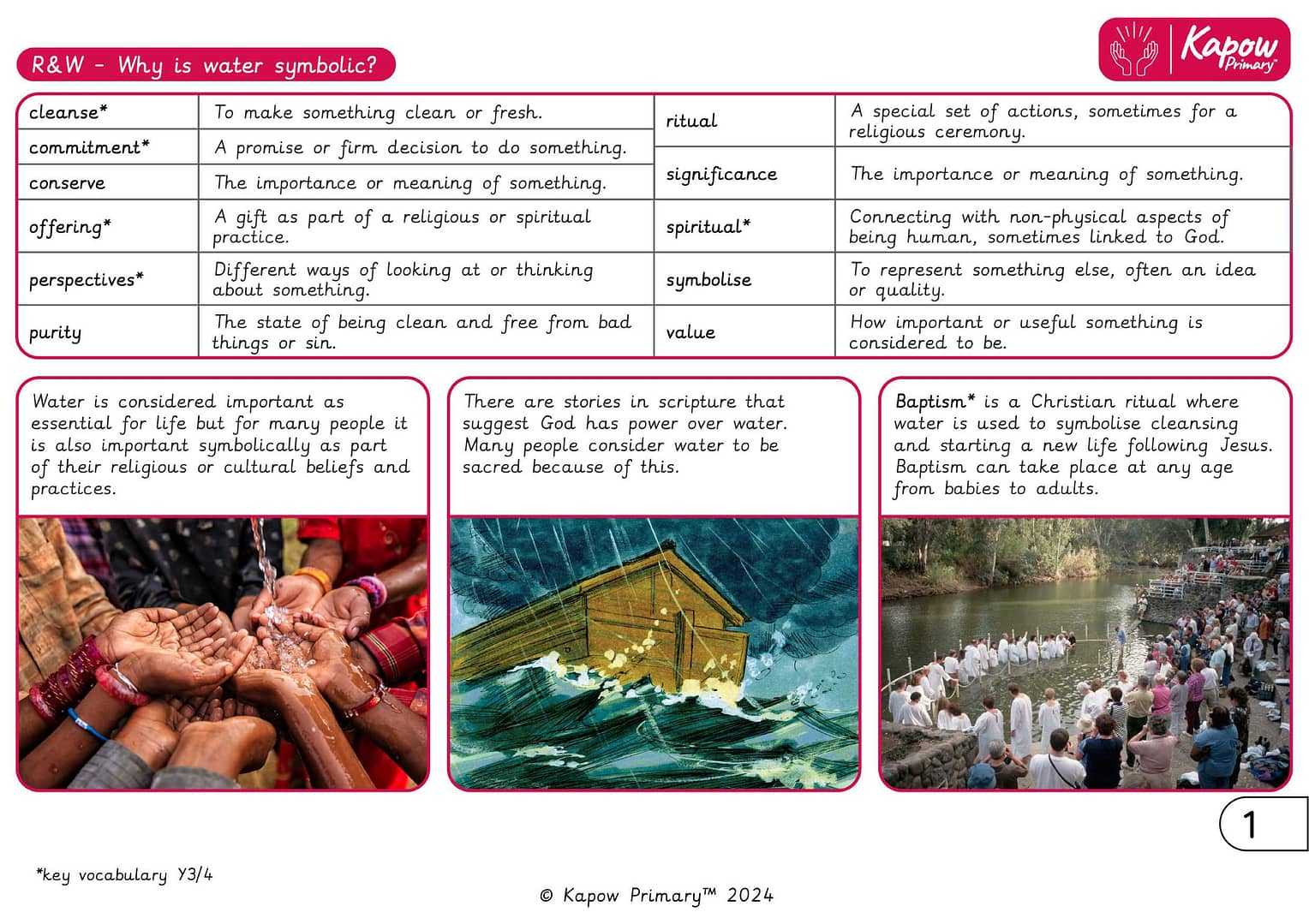
A Knowledge organiser that captures the essential knowledge and skills learnt throughout the mixed-age unit Religion and worldviews, Y3/4 (A), Why is water symbolic?.
This resource is designed to support children as they explore the symbolic significance of water in various religious and cultural practices. It highlights key vocabulary, rituals and beliefs, such as Christian baptism, Hindu sacred bathing and the spiritual importance of water in Buddhism and Shintoism. It is perfect for consolidating essential knowledge and fostering cross-cultural understanding
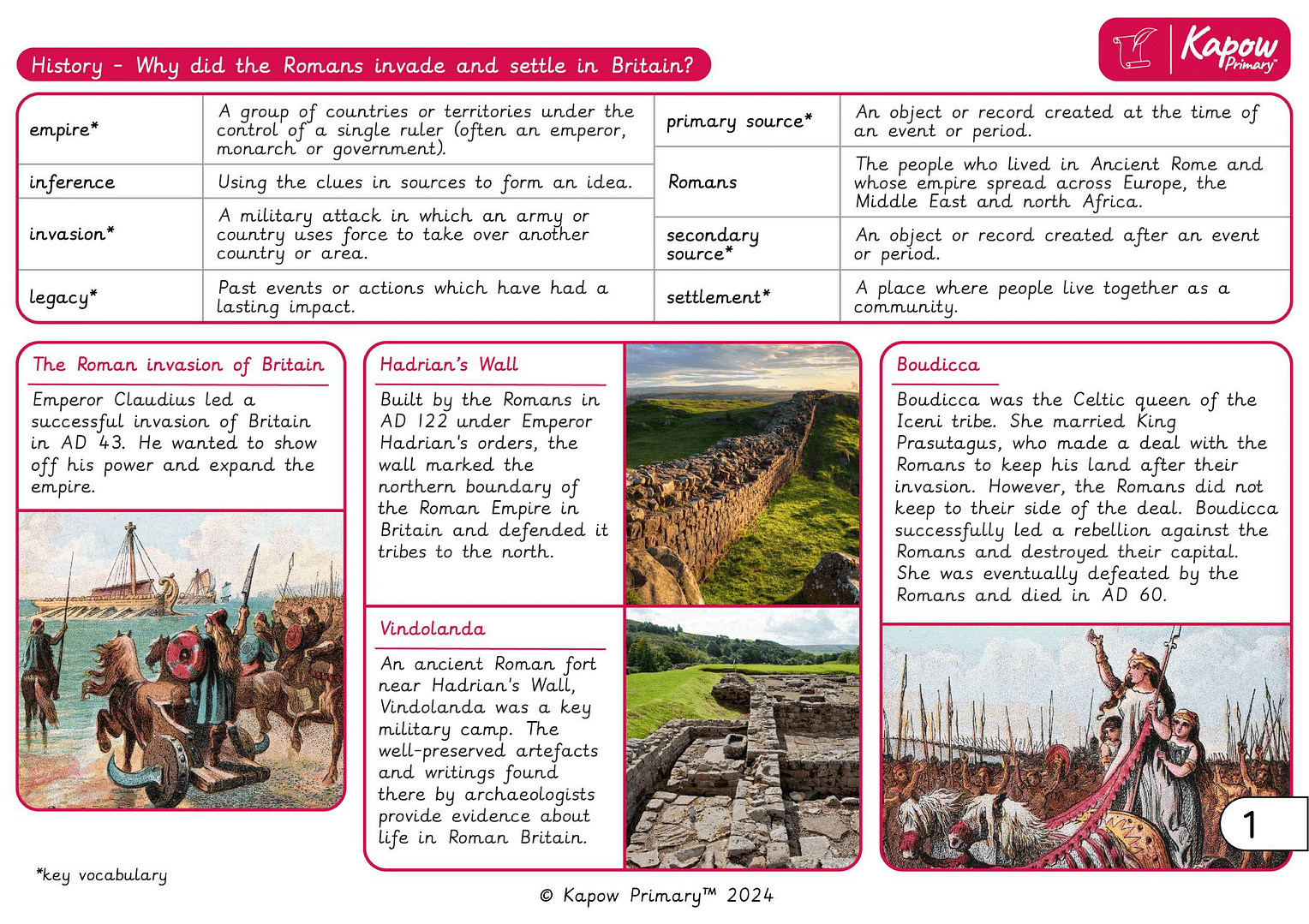
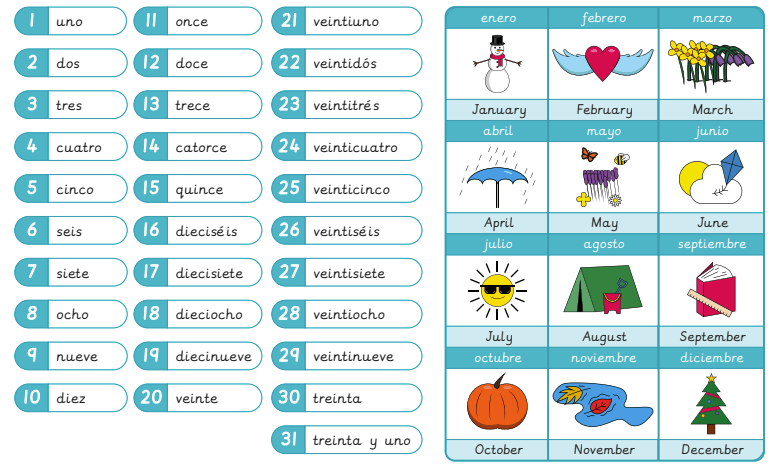
A Knowledge organiser that captures the essential knowledge and skills learnt throughout the mixed-age unit Spanish, Y3/4 (A), Unit 5: Dates and birthdays.
This resource is designed to support pupils as they learn to recognise, say, and write numbers up to 31 in Spanish and apply them in the context of calendar dates and birthdays. It introduces vocabulary for months of the year, ordinal number forms, and how to construct sentences for stating the date and asking or answering questions about birthdays. Illustrated with engaging visuals and bilingual prompts, the resource reinforces essential grammar and cultural conventions—such as lowercase months—and is ideal for consolidating vocabulary and sentence structure around personal information.
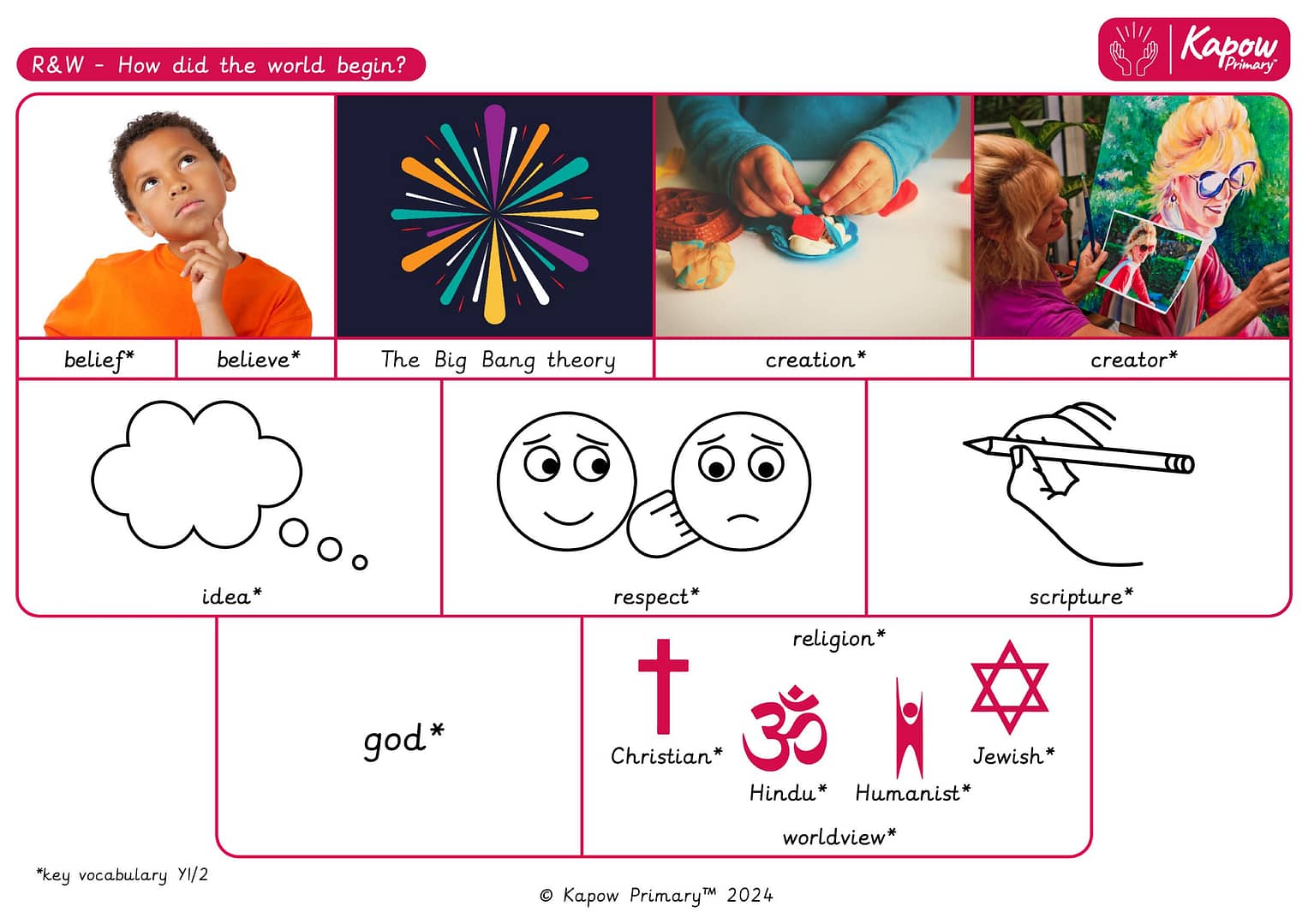
A Knowledge organiser that captures the essential knowledge and skills learnt throughout the unit Religion and worldviews, Y1/2 (A), How did the world begin?
This Religion and Worldviews resource is designed to support the pupils as they explore different religious and cultural perspectives on the origins of the world. It introduces key vocabulary such as creation, belief, faith, myth, and tradition, helping the pupils understand how various worldviews explain the beginning of life. The pupils will also learn about creation stories from different religions and how these shape beliefs about the world and humanity.
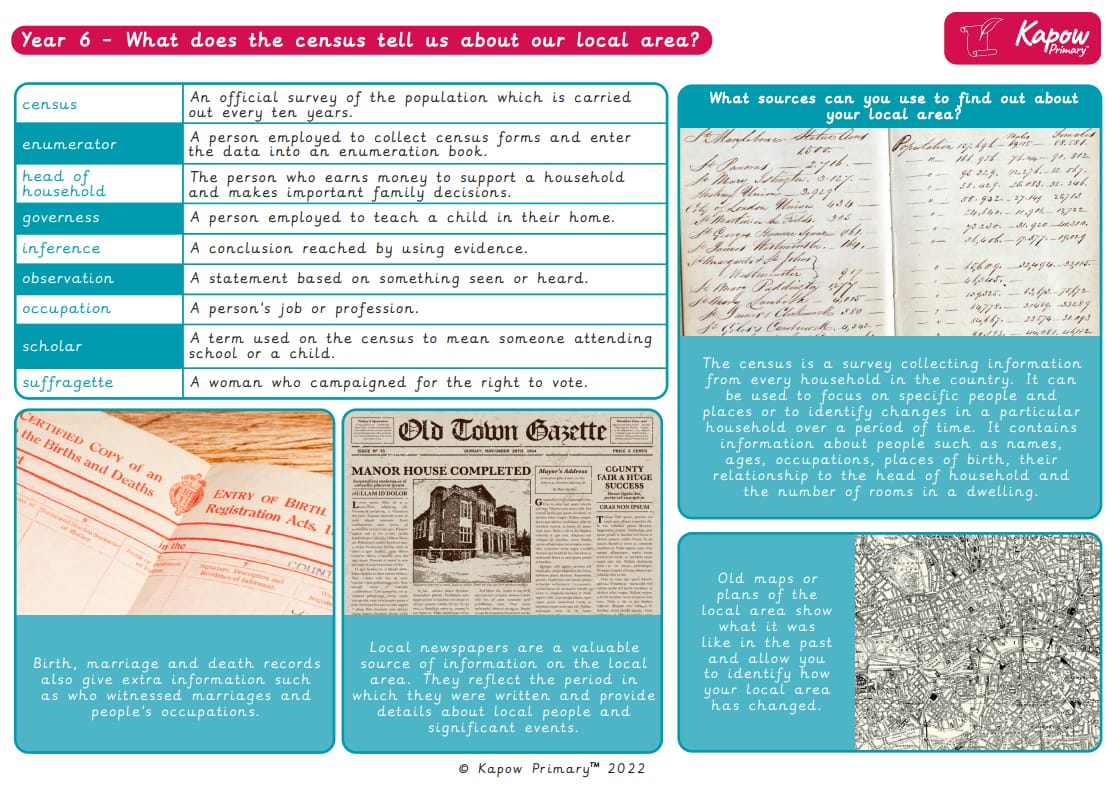
A Knowledge organiser that captures the essential knowledge and skills learnt throughout the unit Archived – History, Year 6, What does the census tell us about our local area?
This resource is designed to help pupils explore how census data provides insights into the lives of people in the past and present. It introduces key vocabulary such as “enumerator”, “inference”, and “head of household”, and explains the purpose and structure of the census. Through sources like birth and death records, newspapers, and maps, pupils investigate how local areas have changed over time. The historical timeline from 1801 to 2021 shows the development of census-taking in Britain, encouraging children to analyse data, draw conclusions, and understand the impact of demographic shifts. This is an ideal tool for building historical enquiry skills and deepening understanding of population studies and local history.
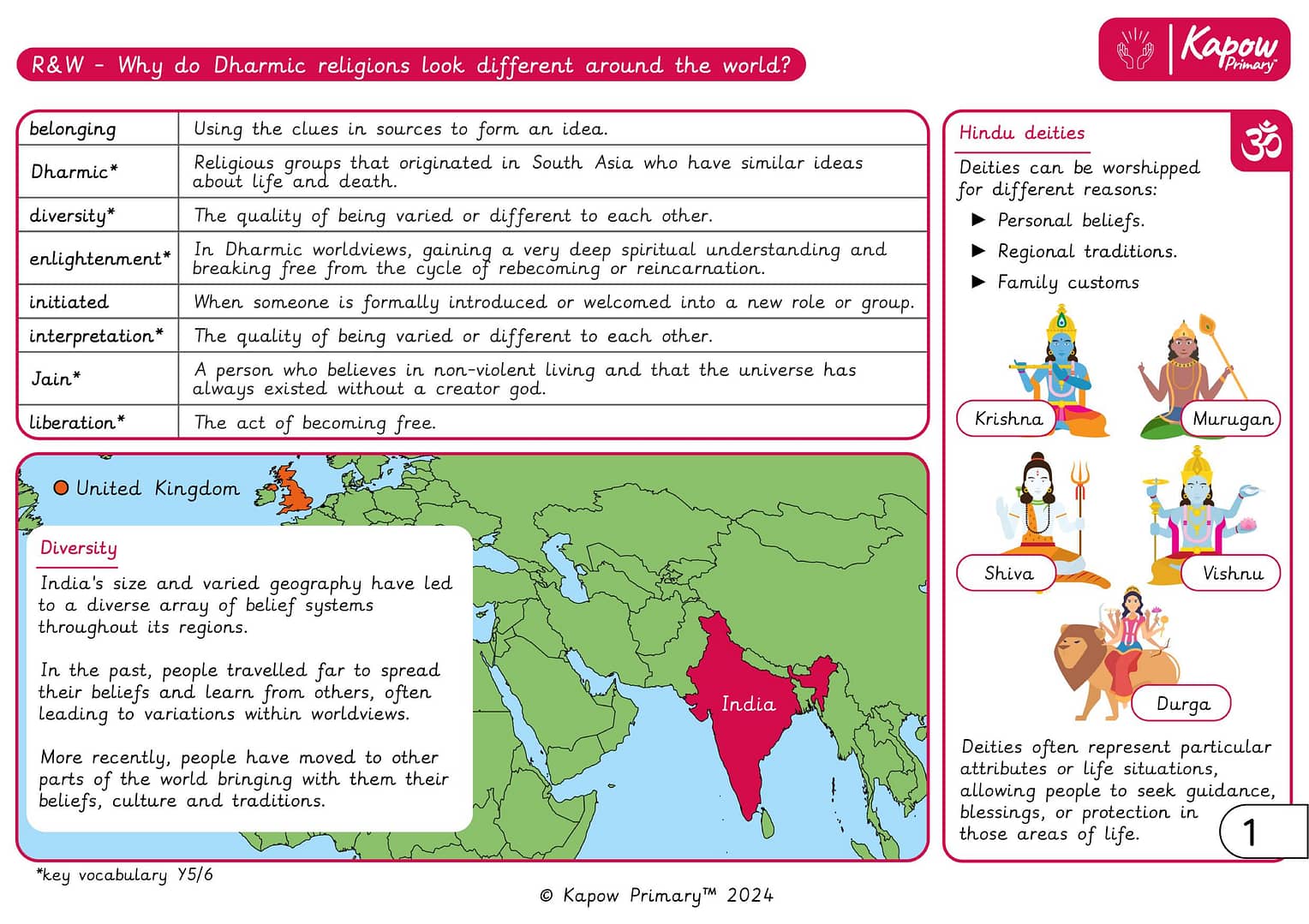
A Knowledge organiser that captures the essential knowledge and skills learnt throughout the unit Religion and worldviews, Year 5/6 (A), Why do Dharmic religions look different around the world?
This resource is designed to support pupils in understanding the diversity within Dharmic religions and how beliefs and practices vary globally. It introduces the concept of religious diversity influenced by regional geography, cultural traditions, personal beliefs, and historical movement of people. The organiser highlights key vocabulary such as “liberation,” “enlightenment,” and “interpretation,” while also exploring symbolic elements like light in festivals and the significance of Hindu deities. It explains how Buddhist practices differ between schools such as Theravada and Mahayana, and how Sikh identity can be expressed through initiation rituals and the five articles of faith. This resource is perfect for deepening understanding of religious diversity and cultural identity across the world.